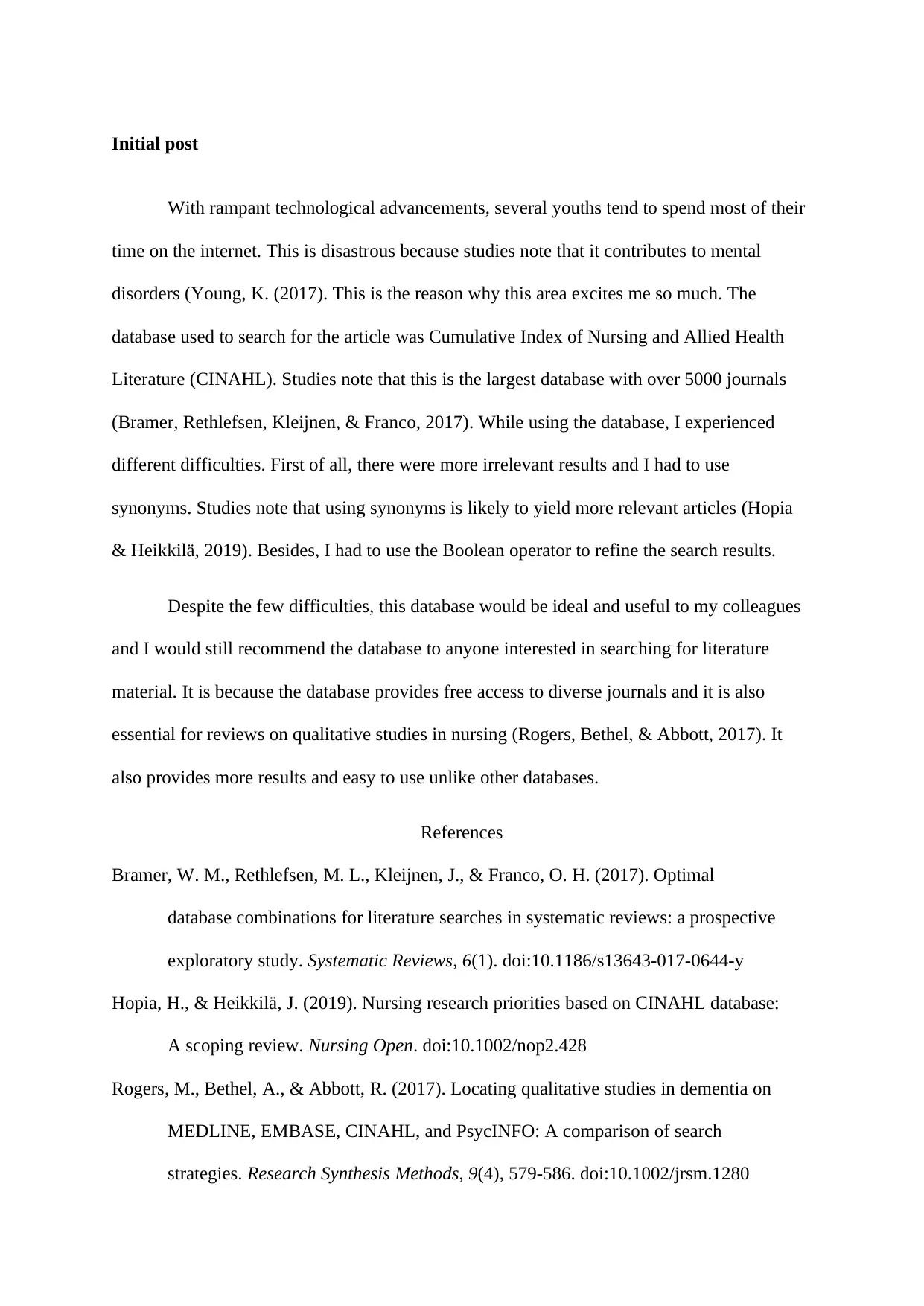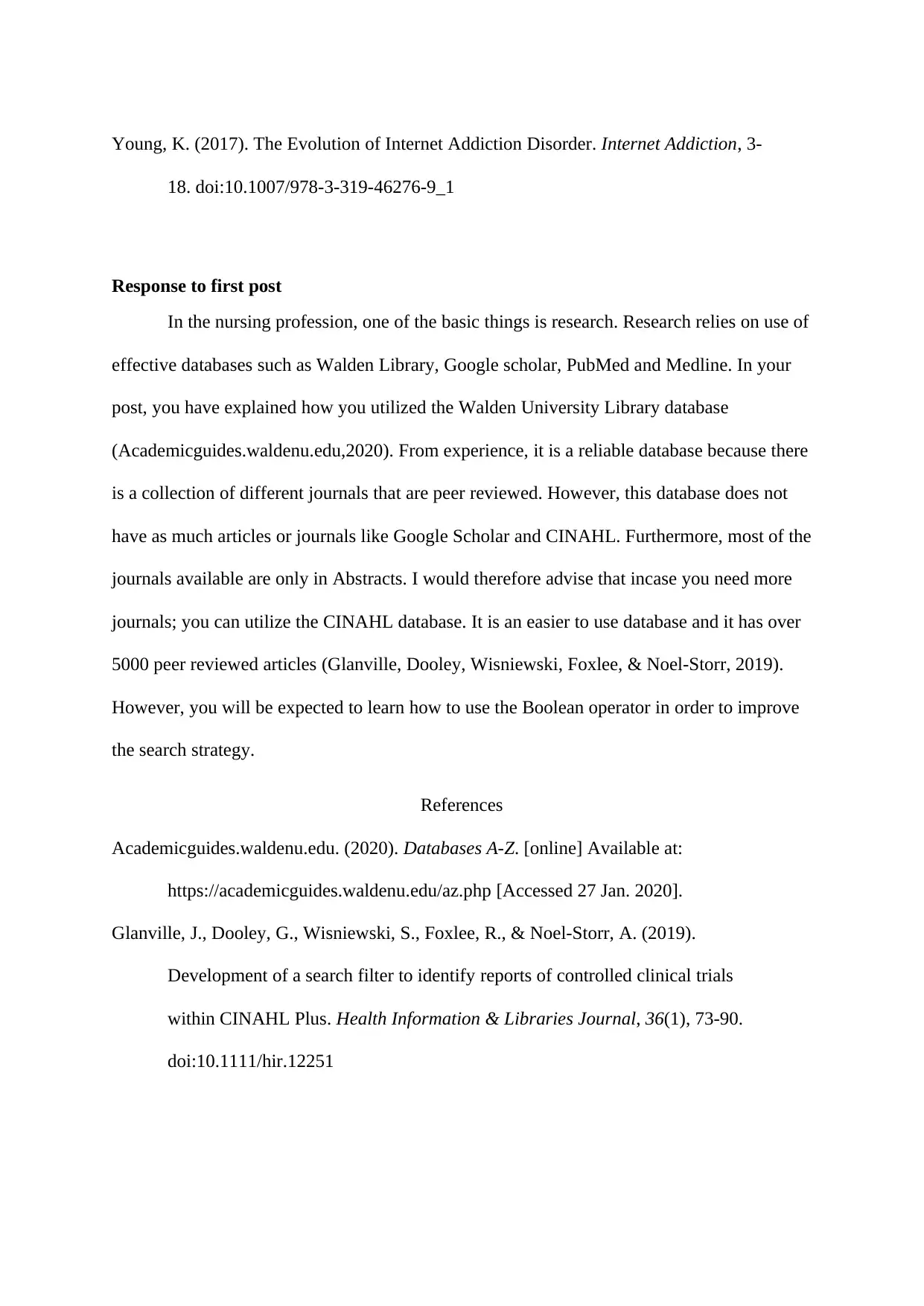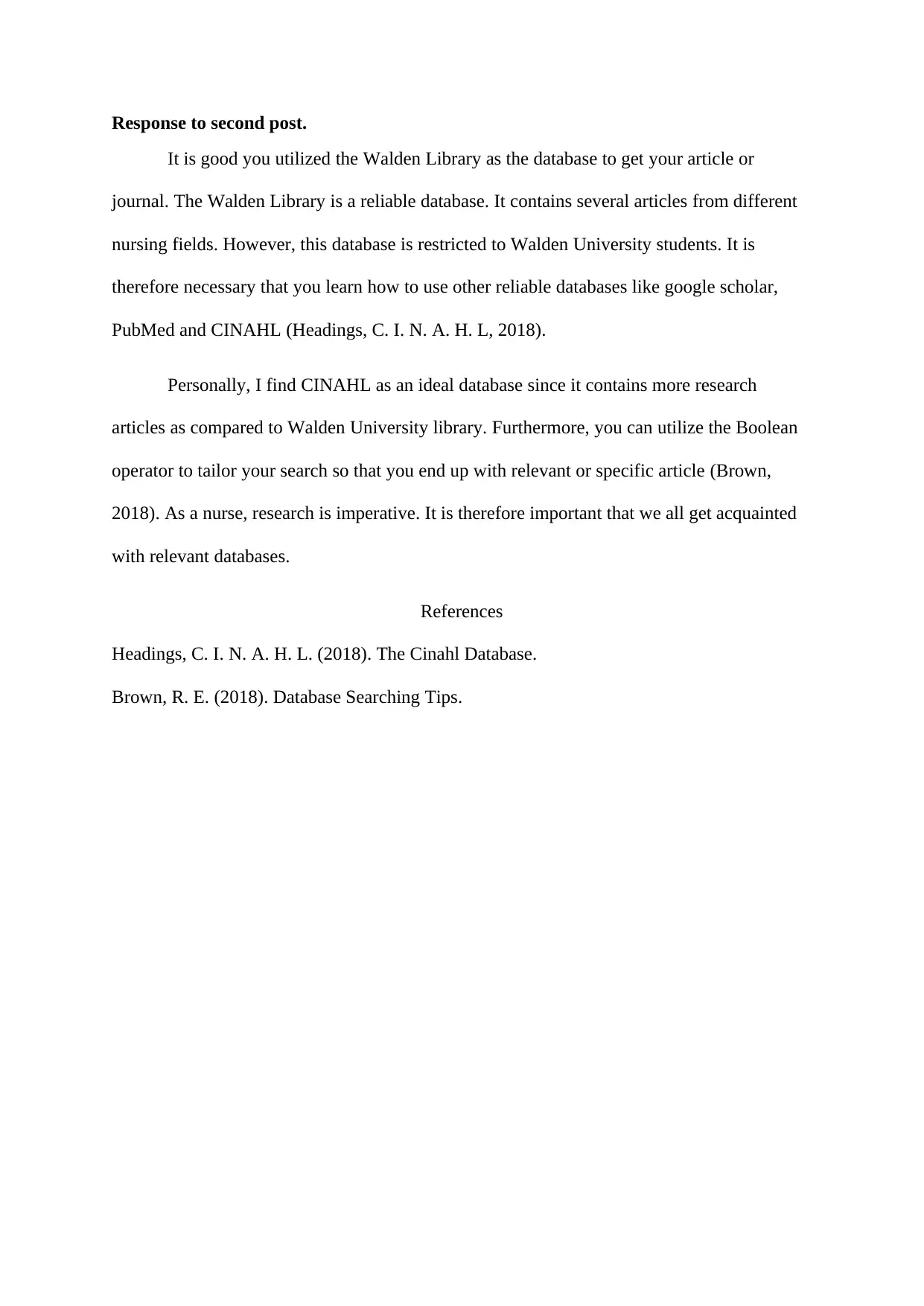Nursing Discussion: Database Search, Strategies, and Nursing Research
VerifiedAdded on 2022/08/23
|3
|821
|24
Discussion Board Post
AI Summary
This discussion board assignment focuses on effective database search strategies within the field of nursing. The student's initial post highlights the use of the CINAHL database, discussing the challenges faced, such as irrelevant search results, and the use of synonyms and Boolean operators to refine searches. The student emphasizes the database's usefulness and recommends it for its access to diverse journals. Subsequent posts provide responses to classmates, offering suggestions for using Walden University Library, Google Scholar, PubMed, and CINAHL, and emphasizing the importance of peer-reviewed journals and research in nursing. The responses also offer advice on using Boolean operators and alternative databases. The assignment showcases the importance of database searching for nursing research and the value of peer-reviewed journals.
1 out of 3




![[object Object]](/_next/static/media/star-bottom.7253800d.svg)